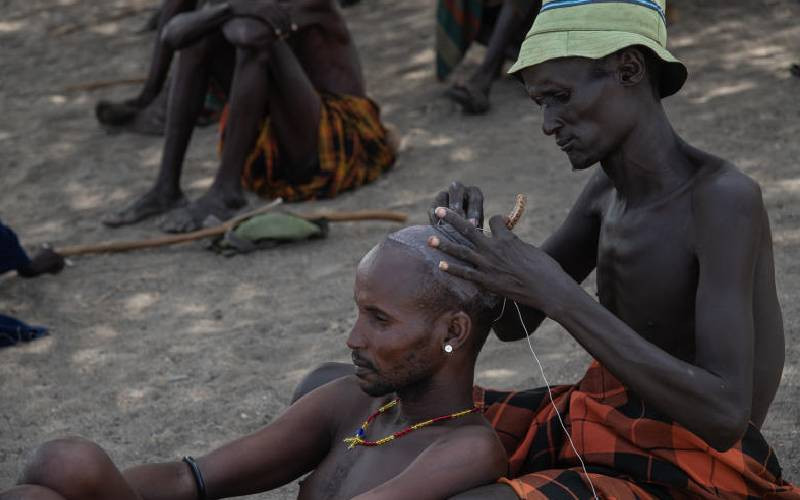×
The Standard e-Paper
Home To Bold Columnists

Merille elders from the Ethiopian community in South Omo plait their hair as a traditional way to conserve their culture. [Lucas Ngasike, Standard]
Because this is the season when our sons and daughters are getting married, I have had the privilege of participating in numerous marriage related cultural events crossing many of our cultures.